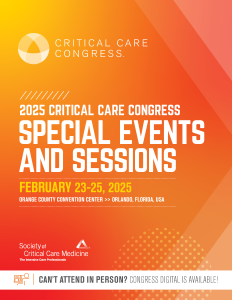Sepsis
Research Snapshot Theater: Sepsis/Infectious Disease, Adult and Pediatric
(1617) Importance of Emperic Antifungal Treatment in Septic Shock for Cirrhotic Patients
Tuesday, February 25, 2025
8:45am - 9:45am Eastern Time
Location: Connections Central - RST 08
- Pf
Pooneh farhangi, MD
resident physican
United health services, United States - wA
wajiha Ali, MD
resident physican
United health services, United States
First Author(s)
Co-Author(s)
Introduction: Cryptococcal meningoencephalitis is predominantly observed in immunocompromised individuals, particularly those with HIV or undergoing immunosuppressive therapy. However, cases are reported in patients with other conditions, including hepatic failure. Here we introduce a case of septic shock due cryptococcal meningitis in a patient with hepatic failure that resulted in mortality due to delayed treatment.
Description: 42-year-old male with an unremarkable medical history was admitted due to sudden onset gastrointestinal bleed, requiring intubation for airway protection. CT scan of the abdomen revealed a newly diagnosed cirrhotic liver, while an EGD showed multiple bleeding varices, leading to six banding procedures and multiple transfusions. Despite these efforts, the patient's condition deteriorated, and he developed septic shock unresponsive to broad-spectrum antibiotics. Lumbar puncture culture yielded a positive result for Cryptococcus. Further work up for humoral immunity deficiency, HIV, and viral hepatitis tests were negative. Despite initiating antifungal treatment, the patient expired to Cryptococcus meningitis, which was detected late in this unexpected case.
Discussion: Cryptococcus is often a deadly infection with patient's scuccumbing to their illness before the cultures become availble. Early suspicion and intervention within this population can markedly enhance their chances of survival. A study highlighted the criticality of initiating antifungal therapy within the first 48 hours, revealing a clear link to enhanced survival rates. Unfortunately, individuals with liver cirrhosis were notably less likely to receive this essential treatment. Moreover, there's been discourse on how the symptoms of Cryptococcus meningitis can mirror those of hepatic encephalopathy, potentially leading to under recognition of the infection within this demographic. The importance of empirically starting antifungal therapy in critically ill patient's in shock in addition to broad spectrum antibiotics may be a great idea of study in hopes of enhancing the survival of this population in ICU.
Description: 42-year-old male with an unremarkable medical history was admitted due to sudden onset gastrointestinal bleed, requiring intubation for airway protection. CT scan of the abdomen revealed a newly diagnosed cirrhotic liver, while an EGD showed multiple bleeding varices, leading to six banding procedures and multiple transfusions. Despite these efforts, the patient's condition deteriorated, and he developed septic shock unresponsive to broad-spectrum antibiotics. Lumbar puncture culture yielded a positive result for Cryptococcus. Further work up for humoral immunity deficiency, HIV, and viral hepatitis tests were negative. Despite initiating antifungal treatment, the patient expired to Cryptococcus meningitis, which was detected late in this unexpected case.
Discussion: Cryptococcus is often a deadly infection with patient's scuccumbing to their illness before the cultures become availble. Early suspicion and intervention within this population can markedly enhance their chances of survival. A study highlighted the criticality of initiating antifungal therapy within the first 48 hours, revealing a clear link to enhanced survival rates. Unfortunately, individuals with liver cirrhosis were notably less likely to receive this essential treatment. Moreover, there's been discourse on how the symptoms of Cryptococcus meningitis can mirror those of hepatic encephalopathy, potentially leading to under recognition of the infection within this demographic. The importance of empirically starting antifungal therapy in critically ill patient's in shock in addition to broad spectrum antibiotics may be a great idea of study in hopes of enhancing the survival of this population in ICU.

